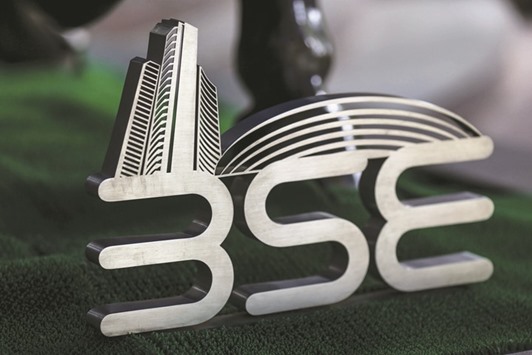India’s mid and small-cap stocks rose for a second day, helped by health-care companies and utilities, even as the benchmark gauge gave up gains to close little changed before the expiry of derivative contracts on Thursday.
Divi’s Laboratories capped its biggest two-day gain since August 2015. The stock lost a record 31% over Friday and Monday amid observations made by the US Food and Drug Administration about the company’s manufacturing facility.
JSW Energy Ltd surged as much as 6.4% in a second day of advances after the board approved a fundraising plan. Mangalore Refinery & Petrochemicals rallied 8.9%, the most in a month.
The S&P BSE Sensex climbed as much as 0.8% as traders closed bearish bets before the expiry of the December derivatives expiry. The gains evaporated in the final hour of the session characterised by below-average volumes.
With overseas investors away on year-end holidays, attention turned to mid-sized companies, according to Citrus Advisors.
“Lower foreign investor activity and relatively higher participation by local funds due to the holiday season is the reason why mid-caps continued to beat the large-caps today,” Sanjay Sinha, founder of Citrus, said by phone from Mumbai. “Local funds direct more money to mid-caps than overseas investors. That’s why mid-caps have outperformed this year.”
Local funds have bought $6bn of shares since January 1, extending last year’s record inflow of $10bn, according to data compiled by Bloomberg. A bulk of the purchases have been in companies whose earnings are tied to the local economy such as providers of financial services, staffing firms and operators of diagnostics chains. That’s pushed up the S&P BSE MidCap Index 5.6% this year, compared with a 0.4% gain in the Sensex.
Overseas investors have sold about $875mn of Indian shares this month, adding to $2.6bn of withdrawals in November. That’s pared this year’s inflow to $3.2bn.
Bharat Financial rose 10%, most since July 22; Morgan Stanley bought 1.1% stake on December 23, the company said in a filing yesterday after trading ended.
Electrosteel Steels jumped 9.4%, the steepest gain in 5 months; Financial Express reported earlier yesterday that Piramal Enterprises (PIEL), Renaissance group may buy 51% stake; PIEL climbed 1.8%. Sunil Hitech Engineers rallied 4.7% after its venture in Arunachal Pradesh received a Rs4.34bn order.
Meanwhile the rupee yesterday closed one month low against the US dollar on consistent selling by foreign institutional investors in the local equity and debt markets. This was the second consecutive sessions when the rupee fell.
The rupee closed at 68.24 per US dollar — a level last seen on December 1, down 0.27% from its previous close of 68.06. The home currency opened at 68.05 against the US dollar and touched a low of 68.25 — a level last seen on December 5. So far this year, it has fallen 3%.
Since November 8, the foreign institutional investors have sold a combined of $10bn in domestic equity and debt markets. So far this year, foreign institutional investors have bought $3.18bn in equities and sold $6.73bn in debt.
Fall in the Asian currencies also dampened the local currency. Japanese yen was down 0.24%, South Korean won 0.21%, China Offshore 0.13%, Singapore dollar 0.11%, Indonesian rupiah 0.11%, Malaysian ringgit 0.1%, China renminbi 0.1%, Taiwan dollar 0.08%, Philippines peso 0.07%.
The 10-year bond yield closed at 6.584%, compared to Tuesday’s close of 6.615%. Bond yields and prices move in opposite directions.
The dollar index, which measures the US currency’s strength against major currencies, was trading at 103.25 — up 0.22% from its previous close of 103.02.

The S&P BSE Sensex climbed as much as 0.8% yesterday as traders closed bearish bets before the expiry of the December derivatives
